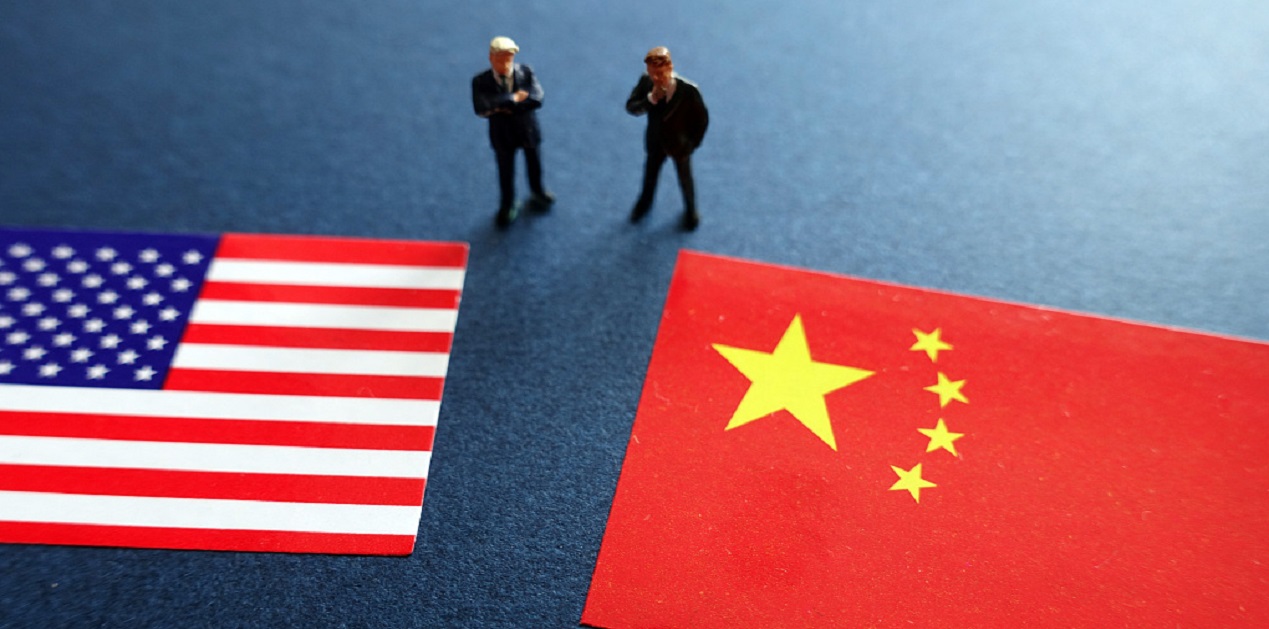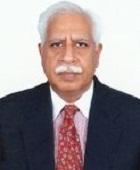As China’s economic situation becomes more difficult and its aggressive policies increase tensions in its neighbourhood, the Chinese leadership is concerned at the turn that its relations with the US are taking. This has generated renewed discussion on ways to try and mend the relationship, still acknowledged as the most significant of China’s bilateral ties and one that has immensely facilitated China’s rise. Chinese companies raise their valuation by listing on the New York stock exchange, enjoy a bilateral trade volume which in 2020 was US$ 615.2 billion and includes Chinese exports to the US valued at US$ 452.58 billion, and the US remains the prime source of hi-technology for China. The relationship is, however, fraught and its continuing deterioration is of considerable worry to China’s leaders who apprehend that a further slide would at the least stall, if not reverse, China’s ‘rise’.
The Chinese leadership’s concern has undoubtedly been accentuated with the plateauing of China’s economic growth, rising prices, growing levels of unemployment, closure of many businesses, and the reports circulating since last month about pay cuts of officials in even the more prosperous provinces and cities like Jiangsu, Zhejiang, Guangdong, Fujian and Shanghai. The annual Central Economic Work Conference held in Beijing in December also pointed to the economic difficulties confronting China.
Of particular interest are the views expressed in the media and at two important conferences by senior influential Chinese officials and ‘America experts’ of the Chinese Communist Party (CCP).Interestingly, these views surfaced around the fortnight of the ‘virtual’ Summit between US President Biden and Chinese President Xi Jinping held in mid-November 2021. An interview given by Yuan Peng, acknowledged as one of China’s Americas experts and President of the influential Chinese Institutes of Contemporary International Relations (CICIR) directly subordinate to China’s External Intelligence arm, the Ministry of State Security (MoSS), is especially of interest. It was published by a Chinese media just days prior to the Summit.
The South China Morning Post (December 23) drew attention to an article published by Yang Jiemian, former President of the Shanghai Institute of International Studies (SIIS) and younger brother of Politburo member and former Foreign Minister Yang Jiechi, in the Shanghai-based ‘The Paper’. The article hinted at the importance of the US to China while implying that the US remains powerful. In the article, Yang Jiemian said China’s US strategy is “confrontational where it must be and collaborative when it can be” and suggested that China should make better use of the US factor in its burgeoning ties with Moscow while maintaining “a sense of crisis” about the limits of its own influence. Defending China’s hawkish stance on the US, however, he cautioned about a possible deterioration in Beijing’s ties with Europe in the coming months. Yang Jiemian cautioned too that, despite warming political and economic ties, China and Russia did not always see eye to eye, observing: “Of course there are problems. Even brothers will have their own problems, not to mention [Russia] is our neighbour.” He added “It is clear that China and Russia are not exactly in the same position on specific foreign policy issues. But we need to bear in mind that those are a secondary aspect of Sino-Russian ties.” While Yang Jiemian described Russia’s turn towards the East, especially China, as “a qualitative change” in President Vladimir Putin’s diplomacy, he said Beijing must remain on the alert and “We cannot afford to completely abandon the sense of crisis. [Communist Party] General Secretary Xi Jinping said we cannot make subversive mistakes on key issues. The same goes for Sino-Russian relations.”
With reference to China’s diplomatic strategy in Europe, he described the European Union as one of the four pillars of global affairs, along with China, Russia and the US, but warned that with Angela Merkel's departure “it would be unrealistic to expect Sino-German relations to remain the same.” He pointed out that “Europe is an ally of the US and they share similar ideals and objectives. They have differences, but only up to a point.” In a separate article published on the SIIS website in November, Yang Jiemian cautioned that Beijing should take into account Russia’s vigilance towards China’s expansion of its influence in Eurasia, and remain alert about Washington’s attempts to split China and Russia and expand its Indo-Pacific strategy.
Significant too are the views expressed by China’s longest serving Ambassador to the US, Cui Tiankai. Ideologically, one of the more conservative ‘Left’ cadres, Cui Tiankai’s term in Washington was extended by Chinese President Xi Jinping because of the good access he had built to the family and inner circle of US President Trump. Speaking at the Diaoyutai State Guesthouse in Beijing on December 21, to Chinese diplomats and academics at an annual seminar hosted by the China Institute of International Studies, a Beijing-based think-tank directly administered by China’s Ministry of Foreign Affairs (MoFA), Cui Tiankai asserted that China must be very vigilant while dealing with the US.
Cui Tiankai said “Every bit of the people’s interest is hard-earned and we must not allow anyone to plunder it or make it suffer through our own carelessness, slackness and incompetence.” He added that tensions between the two powers continue to grow despite the first virtual summit in November between Chinese President Xi Jinping and US counterpart Joe Biden, during which they agreed to try to avoid conflict. He assessed that Sino-US relations were unlikely to improve in the near future. Cui Tiankai also said “The current stage of history in US-China relations will continue for quite some time, and the US will not willingly accept the rise of a power with a very different social system, ideology, cultural traditions and even ethnicity." He pointedly mentioned that there had been “a very strong element of racism” in Washington’s China policy. Cui Tiankai asserted “The US will inevitably try every possible means and spare no effort, even without a bottom line, to suppress, contain, divide and besiege China.” His views appear to have sharpened since his article in July 2012 prior to his being appointed Ambassador to the US.
Speaking at the same event, Chinese Foreign Minister Wang Yi said China welcomed mutually beneficial cooperation and healthy competition with the US, but was not afraid of confrontation. Outlining China’s diplomacy priorities for the next year, Wang Yi said China and the US should work together to improve their relations in 2022, which marks 50 years since former US president Richard Nixon’s historic visit to Beijing that paved the way for normalising relations between China and the US in 1979.
A somewhat contrary viewpoint that seemed to have left the door open for compromise, was expressed by 73-year old Zhang Baijian, former deputy chief of the Party History Research Centre and the son of Zhang Wenjin, a former Chinese Vice Foreign Minister who took part in Premier Zhou Enlai’s talks with Henry Kissinger during the latter’s secret visit to China in 1971. Addressing a panel on Sino-US relations at an economic development forum in Sanya, Hainan, in December, Zhang Baijian stressed the need for China to balance ‘opening up’ and ‘safeguarding national interests’. He said the US is capable of strongly overcoming all challenges and recommended that China should not bet against it. He said “The US’ role as a global leader is declining but, from historical experience, the US is also a country with a strong capacity for self-regulation. So it needs to be seen whether there will be an adjustment in the United States in the future.” He added “It is important that we do not pin the hopes for our development on the inability of the United States to solve its own problems.” Zhang Baijian pointed out that as the world’s No 2 economy, China’s policy decisions could have a huge impact on economies big and small, as well as every element in global supply chains. He added that Beijing needed to make its goals, intentions and policies clearer when dealing with other nations.
About a fortnight prior to the Xi Jinping-Biden ‘virtual’ Summit, Yuan Peng, President of CICIR, gave a wide ranging interview on Sino-US relations to Sina Finance.CICIR is among the more influential Chinese think-tanks and Yuan Peng has been noticed in the last two years occasionally briefing the Politburo. Sina Finance published the interview in Chinese on October 21.
In the interview Yuan Peng said "There is a deep-rooted tradition in the United States in dealing with international relations ‘from a position of strength’. As a country that pursues realism, the United States has always pursued ‘power is truth’ since it became the world's number one power in the 20th century". He explained "there are two special reasons why the United States" has repeatedly emphasized ‘starting from strength and status’: "One is to emphasize that the United States is still the world's number one power". It is constantly emphasising ‘starting from the status of power’ to counter China's ‘theory of the east is rising and the west is falling’, and to prove that the world is still in the hands of the United States. "The second is to reflect the deep-seated worries of the United States about its own strength and status. Faced with domestic and foreign problems (and even worse domestic problems), the United States is less confident in its own strength than in the past. The phrase ‘starting from strength and status’ is said every day to cover up the anxiety in his heart, but to highlight the deep-seated worries about the problem of his own strength and status”.
Stating that "China is looking at a general trend over a century or even a few hundred years, and it is not confined to a specific thing", Yuan Peng added that "the United States does not see the historical trend and does not respond to it through deep-level reforms; it still uses absolute strength to handle the relationship between major powers, which is going against the trend of history". He said "the ‘September 11’ incident in 2001 caused the United States to encounter a security crisis. The subprime mortgage crisis in 2008 caused the United States to encounter an economic crisis. Trump’s victory in 2016 was regarded as a political crisis. It may also face a social crisis that has not been seen in decades". He asserted that on the other hand, China "joined the World Trade Organization in 2001, it has been dedicated to development and adhered to the path of peaceful development, and its development is changing with each passing day. But what really worries the United States is not the extent of China's economic strength or GDP growth, but the rise of science and technology, the rise of the military, and the development of its own system which motivated the economic rise". He stressed that what particularly worries the US is that “China's rise is supported by the socialist system with Chinese characteristics and the leadership of the Communist Party of China, not the Western one. It turns out that some people in the United States predicted that China's continued rise must rely on the implementation of the Western system, and that economic freedom will eventually lead to ‘Western-style democracy’. However, it is precisely through the improvement of its own system that China has achieved great development. This makes Americans completely unable to sit still, and even ‘sleeping and eating’".
Yuan Peng said: "from a strategic point of view, China and the United States have undergone strategic changes simultaneously in the past 20 years. From ‘Asia-Pacific rebalancing’ to ‘Indo-Pacific’, the United States shifted its strategic focus to China's doorstep to deal with China, and implemented the so-called global strategic contraction and Asia-Pacific strategic offensive. As a result the two powers namely, China and the United States, have ‘head-on collision’ and ‘hand-to-hand contact’ in the Asia-Pacific region for the first time in a century. Therefore, they often look at each other's every move in a strategically suspicious manner". He next assessed that China and the United States have lost the strategic foundation they relied on in the past. As two countries with completely different social systems, ideologies, civilizations, and stages of development, China and the United States used external factors as a solid strategic basis to support and maintain their relations. During the Cold War, he said, the US relied on the Soviet Union and after the end of the Cold War, it relied on economy and trade, and after the ‘9/11incident’ relied on anti-terrorism. Referring to the hurried withdrawal of the United States from Afghanistan, he assessed that was because "It would rather lose its face and realize a strategic shift from counter-terrorism to better respond to China".
Observing that the two heads of state have spoken again and cooperation in climate change between the two sides has been steadily advancing, Yuan Peng said "Sino-US relations have eased under tension. Ms. Meng Wanzhou returned to the motherland after a lapse of three years. It was achieved in this atmosphere. All this has at least produced positive and good results in the minds of the Chinese people and laid the foundation for promoting peace and stability in the relations between the two countries". However, he said "we have also seen that the United States has created regional tensions through dangerous methods such as the formation of the US-UK-Australia Alliance (AUKUS) and has not loosened its containment and confrontation with China. The fundamental reason for the settlement of the Meng Wanzhou incident is that the Communist Party of China, the Chinese government, and the Chinese people have worked together and persisted throughout the struggle. It is the result of struggle and does not mean a major change in the United States’ strategy towards China. If the Sino-US game is a protracted battle or strategic stalemate, then phased relaxation or tension will be a normal state. The current easing is only intermittent and partial".
Yuan Peng explained that "China's ‘world view’ is mainly manifested in three aspects. The first is the ‘Hundred-Year Change Theory’. The big changes in the world and the ‘great rejuvenation strategy’ of the Chinese nation are like the horizontal and vertical coordinates, which determine the world situation and the overall stage of China. The second is the ‘historical opportunity theory’, that is, whether compared with itself or others China is still, and will be, in a period of strategic opportunity for a long time and whether there will be an even longer period of historical opportunity. The third is the ‘development risk theory’, which is that the more China is in a period of strategic opportunity, the more are the various risks”. He underscored that “The current stage is precisely the stage with the highest risk coefficient". He added "Whether the Sino-US game is moving towards full confrontation or striving for peaceful coexistence will test our wisdom" and that for China, "the great rejuvenation of the Chinese nation is the overall situation, and the Sino-US relationship is a small situation". Yuan Peng said, in conclusion, that "regarding the concerns of the outside world, China needs to maintain a calm mind. It must be good at repaying morality with virtue, and it must also be good at reporting grievances directly, and it must also dare to fight at critical moments. The rise of great powers in history is often achieved through war. We are determined and confident not to achieve the rise by war, but struggle is indispensable".
The appearance of these views in the public domain around the period of the ‘virtual’ Summit between the Chinese and US Presidents suggests that active discussions on Sino-US relations are underway in the CCP. Divergent views regarding Sino-US relations and Beijing’s approach towards it have existed for some years within the CCP. These recent comments by senior Chinese communist cadres suggest they are aware that the US is still powerful and that China will have to prepare to confront the US over the long term. The tenor of their comments and insistence that China is focussed on its own development, however, hints that they favour reaching some compromise with the US in the near term to facilitate China’s development. With Xi Jinping pursuing an assertive hard-line policy, however, a major issue will be to prevent any “loss of face”. This will be very difficult at least till the 20th Party Congress.
(The paper is the author’s individual scholastic articulation. The author certifies that the article/paper is original in content, unpublished and it has not been submitted for publication/web upload elsewhere, and that the facts and figures quoted are duly referenced, as needed, and are believed to be correct). (The paper does not necessarily represent the organisational stance... More >>
Image Source: https://cds.chinadaily.com.cn/dams/capital/image/202007/23/5f192929e4b005da0b47ae61.jpeg










Post new comment